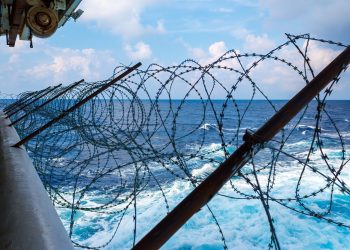Although the shipping industry has been preparing for the upcoming 2020 sulphur cap, international maritime law specialist Hill Dickinson comments that it will be a challenging period for litigators as they will have to deal with disputes between owners, charterers and bunker suppliers in cases of non-compliance
Specifically, following the preparations, there is a feeling of uncertainty around the practical and contractual challenges presented.
# Practical Issues
Shipowners are on the spotlight of the Marpol authorities, ensuring their compliance; If a vessel is not equipped with a scrubber system, compliance is challenging because of the practical issues arising ranging from availability of compliant bunkers, completeness of paperwork on board, tank and line cleaning through to a detailed understanding of fuel stability, compatibility and fuel segregation issues.
# Contractual Issues
Commonly, shipowners devolve the responsibility of supplying the ship’s bunkers to their time charterers. Yet, this is followed by contractual disputes in cases where fuel supplied is found to be marginally above the 0.5% sulphur content.
Hill Dickinson addresses that for the time being there is little guidelines available as to how the Marpol authorities will behave when dealing with marginal breaches of the sulphur cap. Each authority is able to set its own regulations, and potentially enforcement, and the fines associated with breaches will be uneven.
Beth Bradley, a Hill Dickinson Partner states that
The interesting area is what happens where you’ve ordered a compliant fuel, it looks like a compliant fuel, but when it’s tested it’s just off-spec, just slightly over the 0.50% – whose responsibility is that?
Mr Bradley notes that usually the dispute between the parties is a constant fight, trying to understand whether the problem arose from the fuel supplied or how it was handled on board.
However, the sulphur cap adds another challenge, given the situation that a vessel may be ordered to de-bunker, arising the question of who is going to pay the costs.
There will be a lot more focus on what has happened onboard. Such as, were the lines completely clean? Were the tanks completely clean?
… Mr Bradley addresses.
In addition, the Marpol sample and commercial samples will focus on owners, who will be fined on the basis of the Marpol sample and contractual disputes are likely to focus on the commercial sample and arguments around the applicable margin of error to test results as charterers and bunker suppliers seek to show that they delivered compliant fuel
# Recommendations
Hill Dickinson proposes that “time charterparties and related bunker supply contracts should contain carefully worded provisions to clarify bunker specifications, sampling procedures and how the potential loss of time owing to inspections and de-bunkering operations is to be shared.”































































